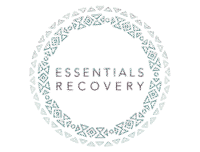It’s never easy when a loved one struggles with addiction. Unfortunately, many individuals who have substance abuse disorders also suffer from a mental disorder, which is also known as dual diagnosis. If you are a parent of a young adult child who is dealing with addiction as well as a mental health condition, you may think help is out of reach. However, a mental rehab center can be the key to helping your son or daughter as it can also treat them for substance use disorder.
First Steps Include Intake
The intake process is the first step toward recovery. Your child will be assessed by an intake specialist to determine the best options for creating a treatment plan that can help them. In a mental rehab center, this is highly extensive as their mental illness is also taken into consideration. While they are admitted into the facility, the intake specialist will interview them to learn more about their condition as well as their addiction. This helps to get a better insight into their issues so that a personalized treatment plan can be created for them. It’s important to remember that not everyone has the same exact problems, and as a result, no single treatment plan will work for all. However, the plan that is ultimately created for your child will be one based on their initial assessment during the intake process. They can expect to undergo a medical exam, psychological assessment and a psychosocial assessment. The intake specialist will ask questions about their personal addiction history, whether there is a family history of substance abuse and more.
Co-Occurring Disorders and Dual Diagnosis
When a person enters a mental rehab center, it is because they suffer from a co-occurring disorder or dual diagnosis. Many people who have a substance use disorder (SUD) also have mental or behavioral disorders, which is known as co-occurring disorders or dual diagnosis. In general, there is no single treatment plan that works for every person, which is why a personalized treatment plan is created during intake. According to the National Survey on Drug Use and Health (NSDUH), 45 percent of people who have addiction problems also suffer from mental illness. Going to a mental rehab facility is the best chance your child has to successfully overcome their addiction. Both their mental health condition and substance use disorder will be addressed in a way that can work for them.
Mental Health Conditions Commonly Linked to Addiction
Certain mental health conditions are commonly linked with drug or alcohol addiction. This is largely due to these disorders making life difficult for a person to the point where they find it hard to cope in their everyday lives. The specific condition your child is dealing with will be addressed by the facility so they can have the best plan tailored for their long-term success. The most common mental health disorders linked to addiction include the following:
• ADHD: People with ADHD may turn to drugs or alcohol as a way to numb their symptoms. Some are prescribed medication, which can lead to addiction.
• Bipolar disorder: People who suffer from bipolar disorder often self-medicate with drugs or alcohol during both highs and lows associated with the condition.
• Borderline personality disorder: More than two-thirds of individuals with borderline personality disorder struggle with substance abuse disorders.
• Depression: Many with depression turn to alcohol or drugs as a way to cope, but substance abuse only worsens their symptoms.
• Eating disorders: Appetite suppressants are the most commonly abused drugs in people with eating disorders.
• Generalized anxiety disorder: It’s common for individuals with generalized anxiety disorder to become addicted to drugs or alcohol. Anti-anxiety prescription medications are also often a problem for those with GAD.
• Obsessive-compulsive disorder: Individuals with OCD often have anxiety or depression as a result of their condition, which can result in them turning to alcohol or drugs to cope.
• PTSD: PTSD results in the brain producing fewer endorphins, which often sees a person relying on alcohol or drugs to regain a feeling of happiness.
• Schizophrenia: When a person with schizophrenia abuses drugs or alcohol, it can be challenging to treat due to the mirroring effects of both the condition and the substances. Individuals can experience delusions and hallucinations, which can only worsen their condition.
The Importance of Medical Detox and Aftercare
Medical detox is important for your child, especially when traditional detoxification results in severe withdrawal symptoms that can potentially be dangerous. They will be medically supervised, which means they will be safe and can have better long-term success. Therapy is also essential for anyone suffering from dual diagnosis. It can help your child get a better perspective on their life, in general, as well as to why they turned to drugs or alcohol in the first place. There are options of an individual, group or even family therapy. In many cases, people find group therapy to be most effective as they get to share their experiences with others who have gone through the same or similar struggles. Aftercare is also necessary for your child’s long-term success so they can retain their newfound sobriety. This might include continuing with therapy or going through a 12-step program. Ready to get started? Call us today at 855-509-1697.
